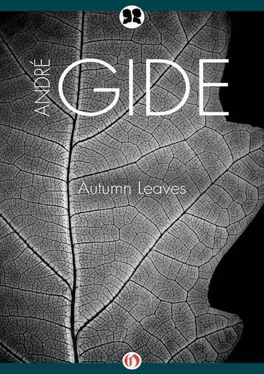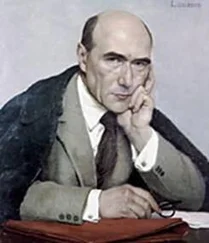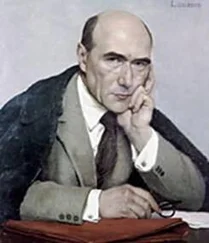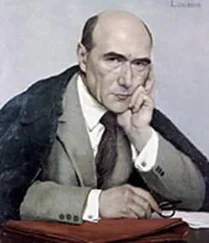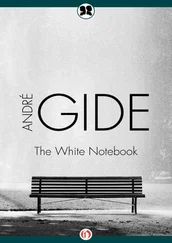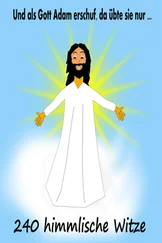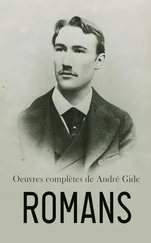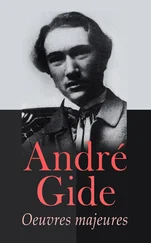I should like to offer as a counterbalance to it, that other idea which has itself escaped science: that this leveling of matter has a corresponding progressive variation in the mind.
“No one comes to the Father (to God), except through me.” To begin with God himself. It is through Christ that God is made.
… so that at last
It all amounts to this — the sovereign proof
That we devote ourselves to God, is seen
In living just as though no God there were.
(BROWNING. Paracelsus! )
The mind advances only over the dead bodies of ideas. To-day it is no longer possible to think what yesterday one considered certain: that the earth is flat; that the sun turns about it; that nature abhors a vacuum; and, more recently, that the atom is indecomposable etc.; the same thing on the mystical plane, although with many more laggards. A number of minds, and some of the best, still believe in Providence. It seems to them that all would be lost if the rock on which the believer has firmly placed his foot, and that he has believed firm, should totter. To move the foundation to a neighboring rock, firm until, in its turn, it totters, is, strictly speaking, progress.
I can not believe in the immortality of the soul without, at the same time, believing in metempsychosis. In order not to be obliged to come to an end … it is necessary never to have begun. I do not even understand how believers can be unembarrassed where my thought stumbles, and prolonging life beyond death, do not immediately feel the need to prolong it equally before birth.
Neuchâtel, November 1947.
I SHALL be able to say “amen” to anything whatever that happens to me, even if it means to exist no longer, to disappear after having existed. But now I exist and do not understand any too well what that means. I should like to see the matter clearly.
For pity’s sake, leave me alone. I need a little silence around me to obtain peace within myself.
How troublesome you are!.. I need to meditate.
“Free-thinking” … X. explains to me that true liberty of thought must be sought on the side of the believer, not on mine.
“For,” he reasoned, “your mind is held on leash by logic.”
I agreed that a remarkable freedom of thought was necessary to believe in the miracles and all that follows; and that I saw very well that his own mind did not revolt against admitting what to me (and to him) appeared contrary to reason. That is even the property of Faith. Where you can not verify or prove, you must believe.
“And if you refuse to believe,” he concluded, “stop telling me and claiming that you love liberty.”
In my heart, I knew very well that I was not a “free-thinker.”
Faith can remove mountains; yes, mountains of absurdities 1. To Faith, I do not oppose doubt, but the affirmation: what could not be, is not.
Therefore I shall refuse to consider the finality in nature. According to the best advice, I shall everywhere replace systematically the why by the how. For instance, I know (or at least I have been told) that the substance which the silkworm discharges in forming his cocoon, would poison him if he kept it in him. He expurgates it. It is for his salvation that he empties himself. Which does not prevent the cocoon, which he is obliged to form under penalty of death, and which he would not know how and would be unable to form differently, from protecting the metamorphosis of the caterpillar; and that the latter can only become a butterfly when empty of this silky poison.… But at the same time, I am forced to wonder at the degree to which the how here joins the why, unites with it so closely, cleaves to it so tightly that I can not distinguish one from the other.
It is the same thing for the mollusk and the shell. The same thing everywhere incessantly; in nature, the solution is not separate from the problem. Or better expressed: there is no problem; there are only solutions. Man’s mind invents the problem afterwards. He sees problems everywhere. It’s a scream. 1
Ah! if my mind would only drop its dead ideas as a tree its faded leaves! And without too many regrets, if it is possible! Those from which the sap has receded. But in heaven’s name! What beautiful colors!
Those ideas which you think at first you can not do without. From that the great danger of establishing one’s moral comfort on false ideas. Let us examine, let us verify first. Formerly the sun turned around the earth; the latter, a fixed point, remained the center of the world, God’s center of attention … And then, not at all! It is the earth that revolves. But then everything is tottering! Everything is lost!.. Nevertheless nothing is changed but the belief. Man must learn to get along without it. He frees himself first from one, then from the other. To get along without Providence: man is weaned.
We are not there yet. That state of complete atheism requires considerable virtue to attain; and even more to maintain. The “believer” will see in it doubtless only an invitation to license. If it were so: long live God! Long live the sacred lie that would preserve mankind from bankruptcy, from disaster. But can not man learn to require from himself by virtue what he thinks required by God? Nevertheless he will have to come to that; some at least, at first; without it, the game would be lost. It will only be won, this strange game we are playing here upon earth (without wanting to, without knowing it, and often against our inclination) if it is to virtue that the idea of God gives place as it recedes; if it is man’s virtue, his dignity, that replaces and supplants God. God exists only by virtue of man. Et eritis sicut dei (That is how I wish to understand that old word of the Tempter — who, like God, exists only in our minds — and see in that offer, that we have been told is fallacious, a possibility of salvation).
God is virtue. But what do I mean by that? It must be defined; I do not succeed very well. I shall only succeed later. But I shall already have done a great deal if I remove God from the altar and put man in his place. Temporarily I think that virtue is the highest an individual can obtain from himself.
God will come later. I persuade myself and repeat constantly: it depends on us. It is through us that God is realized.
What rubbish all this literature is! And even if I should consider only the most successful writings, what business have I, when life is there, with those reflections, those duplicates of life! The only thing that matters to me is what can lead me to modify my way of seeing and acting. To live, all my courage is not too much; to live in this frightful world.… And I know and feel that it is frightful; but I know also that it would be possible for it not to be so, and that it is what we make it. If you denounce the present horror of it, to bring a protest by indignation or disgust, bravo! But if not, away with demoralizers!
There could very well have been nothing; nor anybody. Nobody to notice that there was nothing, and to find that natural.
But what a strange thing that there is something, anything at all.
Something and not a void. Century upon century was necessary to produce this something, to free this something or other from chaos. Still more centuries to obtain the least life. And again still more for this life to reach consciousness. I have ceased to understand, and from its very beginning, this advance, this history. But more incomprehensible than all the rest: unselfishness. Let people go into ecstasies, wrongly without doubt, before the maternal or conjugal abnegation, or altruistical, of the animals; it can be explained, reduced; properly speaking there is nothing disinterested in it; everything follows its inclination and pleasure. I grant it; but it is to wonder all the more when I find these sublime sentiments in man, and capable of gratuitousness. I bend the knee before the slightest act of abnegation, of self-sacrifice for another, for an abstract duty, for an idea. If that is to be the end, the whole world is not too much, all the immense misery of mankind.
Читать дальше
